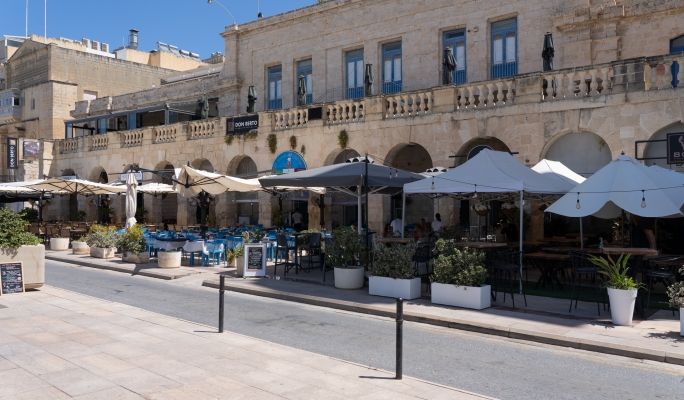Eating places misplaced a sizeable chunk of revenue through the energy cuts over the previous two weeks as they needed to refuse and cancel clients’ bookings.
MaltaToday visited a number of eating places in Birgu and Kalkara however the story they informed us was much like that of different localities impacted by the prolonged energy outages.
Eating places alongside the Birgu waterfront and close to Bighi in Kalkara informed this newspaper that they have been hit by energy outages on Friday 21 July, the place most of them spent your entire day with no energy and needed to flip clients away. Sadly, energy didn’t return to the realm earlier than Saturday afternoon, that means that the eating places additionally misplaced out on lunch service.
D Kalkara Regatta, a restaurant close to the Kalkara marina informed MaltaToday that through the energy cuts, the enterprise needed to throw away round €6,000 price of meals. This sum, doesn’t embrace the revenue misplaced from bookings that have been cancelled. To make issues worse, the proprietor of the enterprise informed MaltaToday that the ability lower occurred on one of many busiest days of the summer season.
The proprietor of the restaurant, Kenneth Camilleri additionally expressed his frustration in the direction of the truth that through the energy outages, his enterprise needed to lease mills with a view to attempt to keep open, however to no avail. Camilleri stated that when he was reaching out to individuals to discover a generator to lease, he was informed that lots of the mills available have been already being rented to eating places and companies affected by the ability cuts.
This restaurant proprietor was not alone in his frustration. The proprietor of a small restaurant on the Birgu waterfront who didn’t want to be named stated his enterprise needed to throw away between €350 and €400 price of inventory.
One other restaurant in Kalkara acknowledged that at least 53 bookings have been cancelled because of the energy cuts, which doesn’t embrace the purchasers who come with out reservations, which, based on the proprietor, averages between 25 to 35 clients on a Friday. The proprietor stated they have been very anxious relating to the eventuality of extended durations the place their restaurant would virtually be burning cash.
Different restaurant house owners informed MaltaToday that because of the uncertainty surrounding when energy can be restored, “we needed to preserve employees round simply to attend in case the ability got here again,” that means that staff have been paid for a full day’s work whereas the eating places made no revenue on the day.
In the meantime, different areas of Malta the place eating places weren’t as affected as these in Birgu and Kalkara nonetheless had issues to function. As an illustration, eating places in Wied iż-Żurrieq had fewer hours with out electrical energy, however when talking to this newspaper, many house owners stated that the blackouts posed totally different points.
When requested whether or not or not the ability cuts had affected their work, one proprietor stated that the restaurant had not suffered any main losses, however jokingly stated, “take a look at my eyes. I couldn’t sleep in any respect with out air con these previous few days.”
The general affect of the in depth energy cuts has but to be quantified however small enterprise house owners are retaining their fingers crossed the comparatively cooler climate will persist all through the remainder of summer season.
In the meantime, at an pressing assembly of the Malta Council for Financial and Social Growth final Friday, the social companions requested for compensation to mitigate the affect of the ability cuts on companies and customers.
Authorities has dedicated itself to subject some type of compensation however didn’t present the social companions with any particulars.
Prime Minister Robert Abela and Vitality Minister Miriam Dalli informed the MCESD that authorities will double the yearly funds to enhance the electrical energy distribution community to €30 million from €15 million in an effort to enhance resilience.
